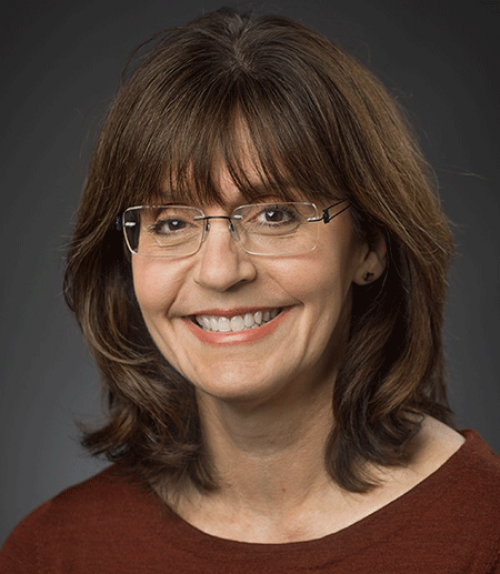Maria Cristina Garcia, the Howard A. Newman Professor of American Studies in the College of Arts and Sciences, and Anthony Burrow, associate professor of human development in the College of Human Ecology, have won the inaugural Faculty Award for Excellence in Research, Teaching and Service Through Diversity.
The awards were announced by President Martha E. Pollack and Provost Michael I. Kotlikoff, following the recommendations of a selection committee that considered 33 nominees. The award comes with a prize of $15,000.
“Maria Cristina Garcia and Anthony Burrow are superb choices as the first recipients of these new awards,” Pollack said. “They have demonstrated sustained commitment to excellence through diversity throughout their careers.”
Students, faculty and staff nominated tenured and tenure-track faculty for the award established last year following the recommendations of the Provost’s Task Force to Enhance Faculty Diversity.
“I applaud Professors Garcia and Burrow for their sustained commitment to diversity and inclusion, and I am extraordinarily pleased to acknowledge their important work in this area,” Kotlikoff said.
Garcia’s scholarship centers on immigration and refugees. Burrow focuses on racial identity, discrimination and how having purpose in life impacts personal growth.
Garcia has published four books, including most recently “The Refugee Challenge in Post-Cold War America,” in 2017, and the 2018 anthology she co-edited, “A Nation of Immigrants Reconsidered: U.S. Society in an Age of Restriction, 1924-1965.”
A Cuban refugee, Garcia arrived in the U.S. with her family in the 1960s.
“The proverbial red carpet was rolled out for us because we were fleeing a communist country during the Cold War,” she said. “As I grew up in this country, I became keenly aware that not all immigrants, refugees and asylum seekers are beneficiaries of such generosity. In my scholarship, teaching and public outreach I have examined different immigrant experiences, and I have tried to dispel the myths that circulate about immigrants.”
Burrow’s research looks at the effects of racial discrimination and exposure to microaggressions on individuals.
“By studying racial microaggressions, I aim to help those who are confronted by these experiences feel better equipped to deal effectively with them,” he said.
His course, Racial and Ethnic Identity Development, helps students explore their own identity, but Burrow said the primary goal is to situate students’ experiences within the scientific literature on the subject.
“Above and beyond general life stress, race-related stress stands out as a particularly unique and salient form of stress that people experience. I study how this type of stress undermines well-being,” Burrow said.
Another facet of his research examines how young people encountering discrimination and social injustices are more resilient when they have an individual sense of purpose. His work on that subject has been published in American Psychologist, Emerging Adulthood, Journal of Personality and Social Psychology, and Journal of Youth Development, among other journals.
Burrow, who was recently named a provost’s fellow for public engagement, has incorporated his research into the Program on Research for Youth Development and Engagement (PRYDE), which he co-founded in 2016, and continues to serve as executive director. A two-year translational research program, PRYDE gives Cornell students interested in the social sciences and health sciences hands-on research opportunities working with adolescents and young adults in the 4-H program across New York.
Beyond their research and teaching, Burrow and Garcia have served as student advocates.
Working with Pollack and President Emeritus Hunter Rawlings, Garcia helped to secure protections for undocumented students on campus in 2016-17. Her students praise her accessibility, empathy, scholarship and inspiration to “do good” in the world.
“I am honored that students think I inspired them to work for social justice, but I think they were moving in that direction anyway. They just took me along on their journey,” she said.
Burrow has a long history in student mentoring. Since 2011, he has participated in the College of Human Ecology’s Peer-Partnership Program, which connects incoming students from underrepresented backgrounds with a faculty member to ease their transition to college life.
He has mentored students in the McNair Scholars program, run by the Office of Academic Diversity Initiatives, to prepare doctoral studies students who are underrepresented in their fields as well as first-generation students with financial need.
Both Burrow and Garcia have been recognized nationally for their contributions. A 2016 Andrew Carnegie Fellow, Garcia is also past president of the Immigration and Ethnic History Society.
Burrow received the 2015 SUNY Chancellor’s Award for Excellence in Teaching and Cornell’s 2019 Engaged Scholar Award in recognition of his work with students, researchers and community members participating in PRYDE. Burrow used the funds from his latest award to launch The Contribution Project, which provides $400 each to 50 Cornell students vowing to make a meaningful contribution to themselves or others.
Garcia contributes regularly to national conversations on topics impacting diverse populations. Her op-eds have been published in major news outlets, including The Wall Street Journal and The Washington Post, and she has been interviewed on National Public Radio. She has briefed the U.S. Congress on refugee issues and served as an adviser on award-winning documentaries and museum exhibits.
“More than ever, scholars must influence policymaking and reasoned public debate, even if it feels like we are shouting into the wind,” she said. “I can’t lose sight of my students, though. My scholarship must have a direct impact on their lives as well.”
Nominations for the 2020 Faculty Award for Excellence in Research, Teaching and Service Through Diversity will be accepted in the fall. Email the Office of Faculty Development and Diversity at ofdd@cornell.edu for more information.




